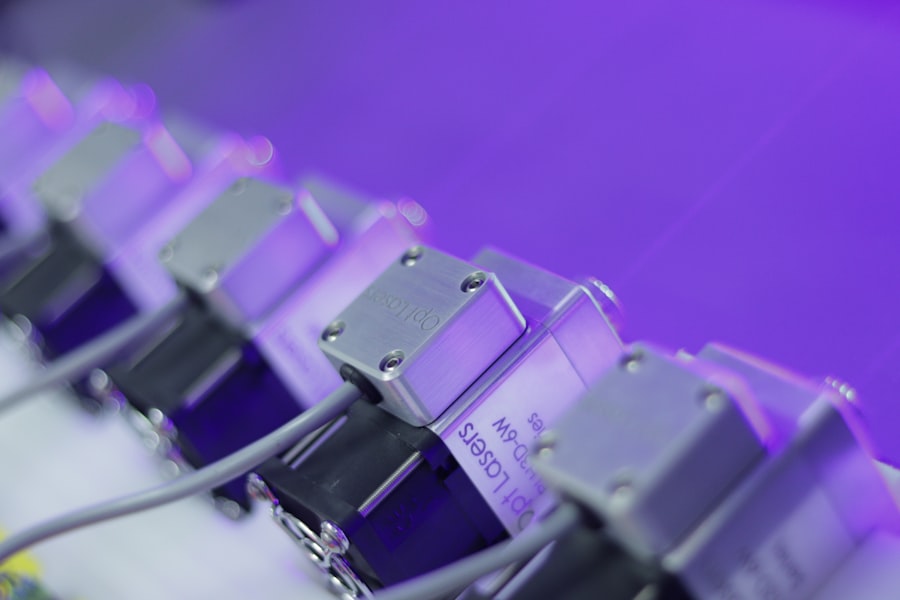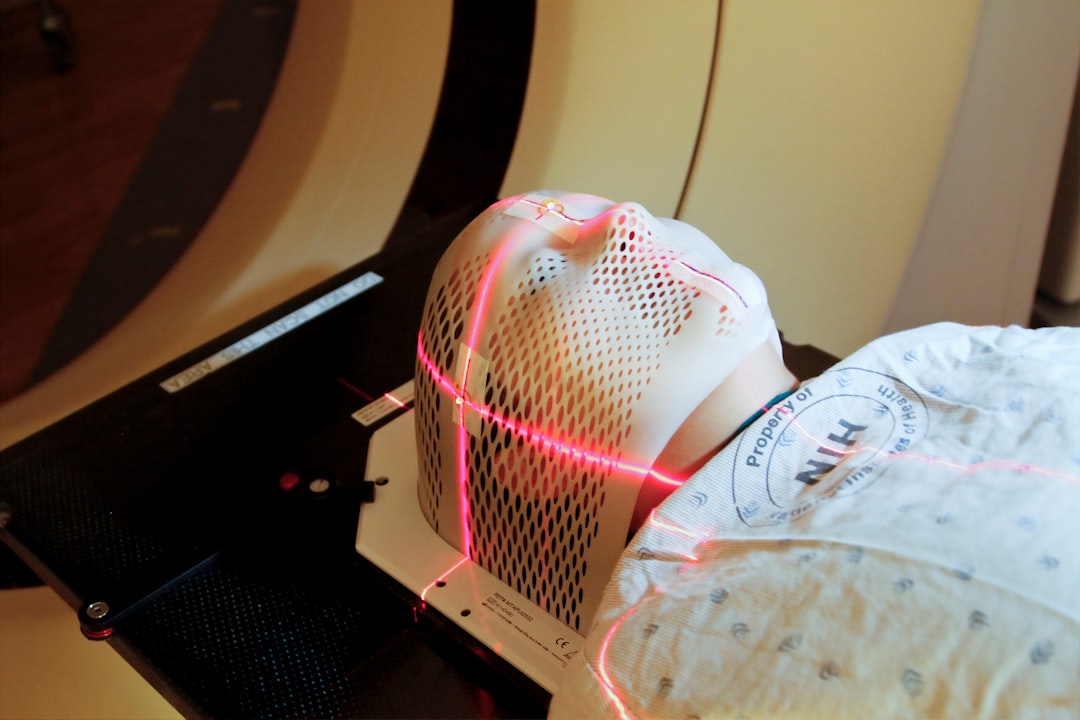Laser hair removal is a popular cosmetic procedure that uses a concentrated beam of light (laser) to remove unwanted hair. The laser targets the pigment in the hair follicles, heating them up and damaging the follicle to inhibit future hair growth. This process is effective for many people, but it’s important to understand that the effectiveness of laser hair removal can vary based on skin and hair type.
Laser hair removal works best on individuals with light skin and dark hair, as the contrast between the skin and hair makes it easier for the laser to target the hair follicles. However, for individuals with darker skin tones, especially African Americans, the process can be more challenging due to the higher levels of melanin in the skin. It’s important for African Americans considering laser hair removal to understand their unique skin and hair types and the potential challenges they may face.
Key Takeaways
- Laser hair removal uses concentrated light to target and destroy hair follicles, leading to permanent hair reduction.
- African Americans have a wide range of skin and hair types, which can impact the effectiveness and safety of laser hair removal.
- Challenges of laser hair removal for African Americans include the risk of skin damage, hyperpigmentation, and ineffective treatment due to darker skin and coarser hair.
- Despite the challenges, laser hair removal can be effective for African Americans with the use of appropriate technology and techniques.
- Precautions and considerations for African Americans considering laser hair removal include seeking out experienced practitioners and undergoing a patch test to assess skin reaction.
Skin and Hair Types in African Americans
African American skin is rich in melanin, which provides natural protection against the sun’s harmful UV rays. This higher melanin content also means that African American skin is more prone to hyperpigmentation, scarring, and other skin issues when exposed to certain cosmetic procedures, including laser hair removal. Additionally, African American hair tends to be thicker and curlier than other ethnicities, which can also impact the effectiveness of laser hair removal.
The Fitzpatrick scale is commonly used to classify different skin types, and African American skin typically falls within type IV to
Type IV skin is characterized by light brown to moderate brown skin that tans easily but can still burn, while type V and VI skin is darker with a higher concentration of melanin. Understanding these skin types is crucial when considering laser hair removal, as it can impact the type of laser used and the potential risks involved.
Challenges of Laser Hair Removal for African Americans
| Challenges of Laser Hair Removal for African Americans |
|---|
| 1. Skin Tone Variation |
| 2. Risk of Hyperpigmentation |
| 3. Potential for Burns |
| 4. Limited Options for Suitable Lasers |
| 5. Higher Risk of Folliculitis |
One of the main challenges of laser hair removal for African Americans is finding the right type of laser that can effectively target the hair follicles without causing damage to the surrounding skin. Traditional lasers used for hair removal are attracted to melanin, which means they can also be absorbed by the surrounding skin in individuals with darker skin tones, leading to potential burns, hyperpigmentation, or scarring.
Another challenge is the thickness and coarseness of African American hair. Traditional lasers may struggle to effectively target thicker, curlier hair, leading to less effective results. Additionally, the risk of ingrown hairs and folliculitis is higher in individuals with curly hair, which can be exacerbated by laser hair removal treatments.
Effectiveness of Laser Hair Removal for African Americans
While there are challenges associated with laser hair removal for African Americans, it’s important to note that the procedure can still be effective with the right precautions and considerations. Advances in laser technology have led to the development of lasers specifically designed for individuals with darker skin tones, such as Nd:YAG lasers. These lasers have longer wavelengths that are better suited for targeting the hair follicles while minimizing damage to the surrounding skin.
When performed by a skilled and experienced professional who understands the unique needs of African American skin and hair, laser hair removal can be effective in reducing unwanted hair growth. It may require more sessions compared to individuals with lighter skin and hair, but with patience and proper care, many African Americans have seen successful results from laser hair removal treatments.
Precautions and Considerations for African Americans

Before undergoing laser hair removal, African Americans should take certain precautions and considerations to ensure the safety and effectiveness of the procedure. It’s crucial to seek out a qualified and experienced practitioner who has specific experience working with individuals with darker skin tones. They should be knowledgeable about the different types of lasers available and how to adjust treatment parameters to minimize the risk of adverse effects.
African Americans should also undergo a thorough consultation before starting laser hair removal to discuss their medical history, skin type, and any potential risk factors. This will help determine the most suitable treatment plan and ensure that realistic expectations are set regarding the results and potential challenges.
Additionally, it’s important for individuals with darker skin tones to avoid sun exposure before and after laser hair removal treatments, as this can increase the risk of complications such as hyperpigmentation. Using sunscreen and avoiding tanning beds is essential to protect the skin during the treatment process.
Alternatives to Laser Hair Removal for African Americans
For African Americans who may not be suitable candidates for laser hair removal or prefer alternative methods, there are several options available. These include traditional methods such as shaving, waxing, and depilatory creams, as well as more advanced techniques like electrolysis.
Electrolysis is a popular alternative to laser hair removal that works by inserting a tiny probe into each hair follicle and delivering an electrical current to destroy the follicle’s ability to produce new hairs. This method can be effective for all skin and hair types, making it a viable option for African Americans who may not be suitable candidates for laser hair removal.
Another alternative is intense pulsed light (IPL) therapy, which uses broad-spectrum light to target the hair follicles. While IPL can be effective for some individuals with darker skin tones, it’s important to consult with a qualified professional to determine if this method is suitable based on individual skin and hair characteristics.
Is Laser Hair Removal Effective for African Americans?
In conclusion, laser hair removal can be effective for African Americans with the right precautions, considerations, and expertise. While there are challenges associated with darker skin tones and coarser hair types, advances in technology and specialized lasers have made it possible for many individuals to achieve successful results from laser hair removal treatments.
It’s essential for African Americans considering laser hair removal to seek out qualified practitioners who understand their unique skin and hair types and can tailor treatment plans accordingly. By taking necessary precautions, undergoing thorough consultations, and following post-treatment care guidelines, many African Americans have experienced positive outcomes from laser hair removal.
For those who may not be suitable candidates for laser hair removal or prefer alternative methods, options such as electrolysis and IPL therapy provide viable alternatives that can effectively target unwanted hair growth. Ultimately, the effectiveness of laser hair removal for African Americans depends on individual circumstances and the expertise of the practitioner performing the treatments. With proper care and consideration, many African Americans can achieve successful results from laser hair removal procedures.
If you’re considering laser hair removal for African American skin, you may be wondering about its effectiveness. According to a recent article on Inlaserhairremoval.com, the number of laser sessions required for effective hair removal can vary depending on the area being treated and individual skin and hair characteristics. Understanding the specific needs and considerations for laser hair removal on darker skin tones is crucial for achieving optimal results.
FAQs
What is laser hair removal?
Laser hair removal is a cosmetic procedure that uses a laser to target and destroy hair follicles, preventing future hair growth in the treated area.
Is laser hair removal effective for African American skin?
Yes, laser hair removal can be effective for African American skin, but it is important to use a laser that is specifically designed for darker skin tones to avoid potential side effects such as burns or discoloration.
What are the potential risks for African American skin undergoing laser hair removal?
Potential risks for African American skin undergoing laser hair removal include burns, discoloration, and scarring if the wrong type of laser is used. It is important to seek out a qualified and experienced practitioner who is familiar with treating darker skin tones.
How many sessions are typically needed for laser hair removal to be effective for African American skin?
The number of sessions needed for laser hair removal to be effective for African American skin can vary depending on the individual and the area being treated. On average, multiple sessions are usually required to achieve long-lasting results.






